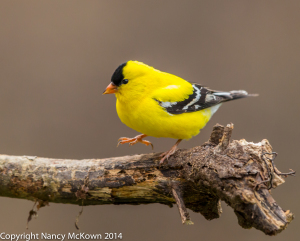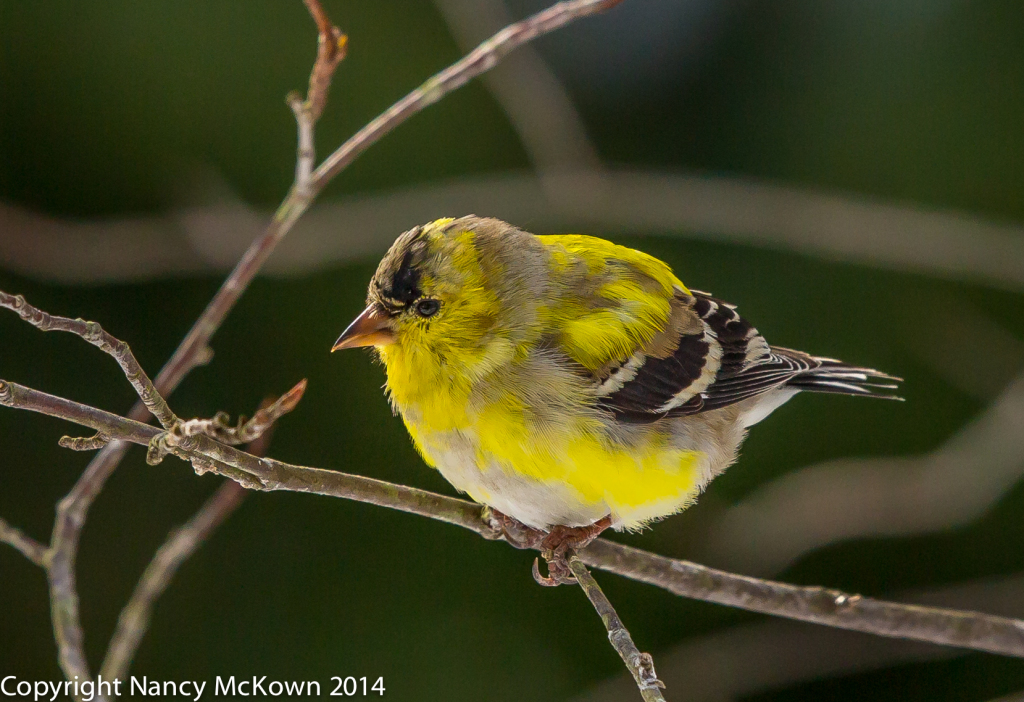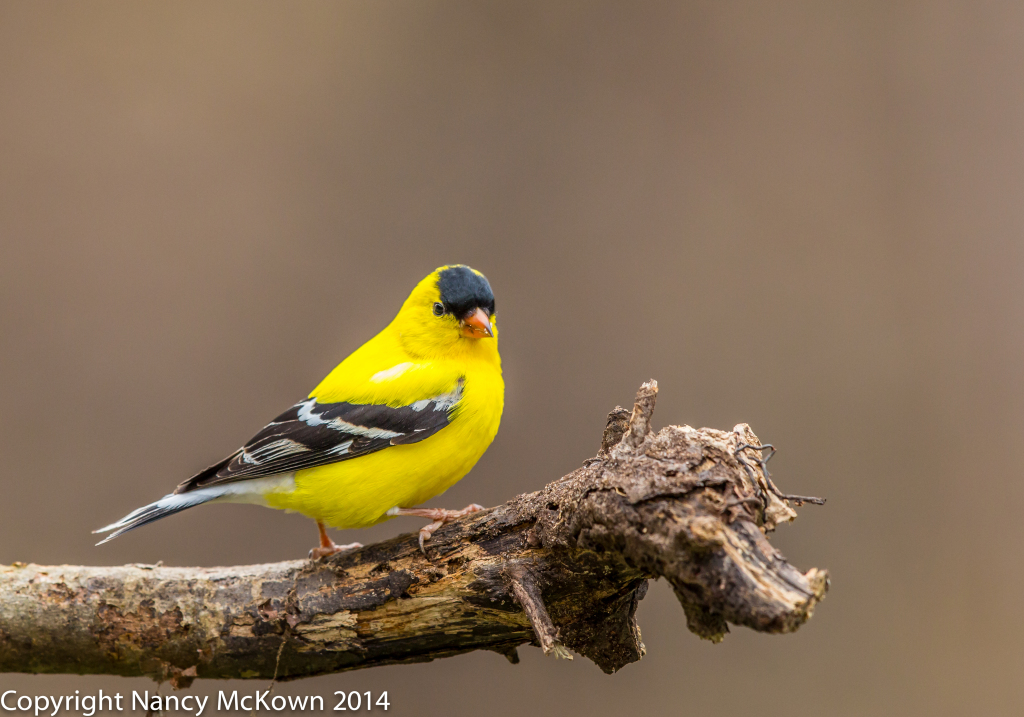Weary of Winter
As I watch the forbidding gelatinous swells push up to the shores of Lake Michigan, I wait with my camera for birds to brighten my day. Nothing. No doubt the few that remain on the beach are freezing and huddled in the lee of some fox free dune.
My heavy coat and equipment bundles weigh me down as I climb the steep flight of stairs and head for home. Winter’s dreariness excites within me yearnings for the new landscape that comes with Spring. Come back my feathered friends, and bring the light!

displaying a rather jaunty pose.
ISO 1600; f/6.3; 1/1250 Second.
Photographing the American Gold Finch
American Gold Finches in drab winter plumage have visited our feeders in January, but so far, not this winter. These birds are unpredictably nomadic and generally forage in noisy flocks. Come Spring, these small sociable songbirds will be plentiful around the feeder, especially if fresh thistle seed is offered. The males are a perky lemon yellow with a pink/orange beak, black cap, white rump, orange legs and dark eyes. They flash their vibrant colors as they float to and from the feeder in wavelike flight.
Here are a few bright photos from last Spring that help me remember that winter will pass and a new beginning is not far off.
My camera was set up on the porch one early April morning and aimed at a thick, broken branch that I positioned and secured on top of the platform feeder. Michigan Aprils are usually very cold, but in the excitement of photographing these lovelies, I don’t remember noticing.

and rather patchy from molting.

ISO 1600;; f/6.3; 1/1250 Second
Spring Colors Bring Photo Opportunities
Many different shades can be seen on the male American Gold Finch as the year progresses. To view slideshow (produced by Sibley Guides) showing their plumage cycle, press this link.
Press this link if you are interested in reading more about Photography Outdoor Studio Setups.









